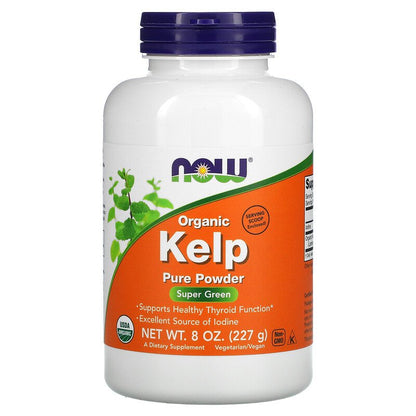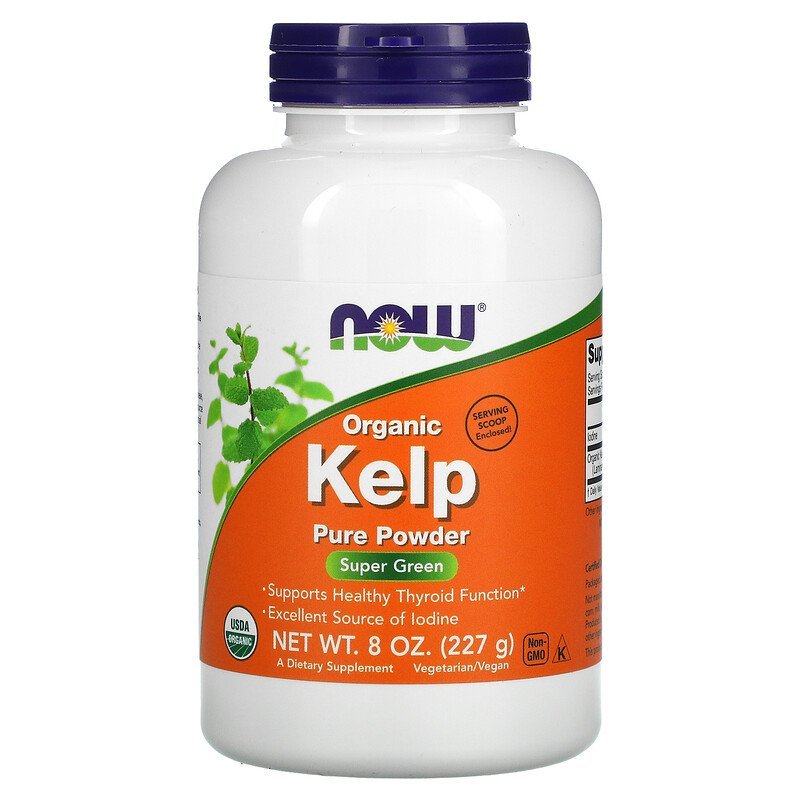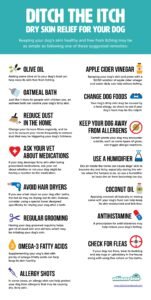Kelp powder can be a great addition to your dog’s diet. It offers many health benefits, including support for skin, coat, and digestion. So let’s see How Much Kelp Powder for Dogs?
Knowing how much kelp powder to give your dog is important for their health. Kelp is rich in vitamins and minerals, but too much can lead to problems. The right dosage varies based on your dog’s size, age, and health needs.
This guide will help you understand the appropriate amounts and how to incorporate kelp powder into your dog’s meals. By learning the correct dosage, you can ensure your furry friend gets the benefits without the risks. Keep reading to discover the best practices for using kelp powder safely and effectively.

Credit: drruthroberts.com
Table of Contents
Introduction To Kelp For Canines
Kelp is a type of seaweed. It is rich in nutrients. Many dog owners are curious about its benefits. Adding kelp powder to your dog’s diet can offer several advantages. This section explores the reasons why kelp is helpful for dogs.
Why Kelp Is Beneficial
Kelp is packed with vitamins and minerals. Here are some key benefits:
- Rich in Iodine: Supports thyroid function.
- High in Antioxidants: Fights free radicals.
- Supports Digestion: Aids in gut health.
- Boosts Immune System: Enhances overall health.
- Promotes Healthy Skin: Keeps fur shiny and healthy.
These nutrients make kelp a valuable addition to your dog’s diet. Always consult your vet before adding new supplements.
Popularity Of Kelp Supplements
Kelp supplements have gained popularity among pet owners. Many choose kelp for its natural benefits. Here are some reasons for its rise:
- Natural source of nutrients.
- Easy to add to food.
- Supports overall health.
- Widely available in pet stores.
Many dog owners trust kelp as a health booster. It is a simple way to enhance your dog’s nutrition.

Credit: www.amazon.com
Identifying Quality Kelp Powder
Choosing the right kelp powder is crucial for your dog’s health. Quality matters. It affects the nutrition and safety of the product. Here’s how to identify top-notch kelp powder.
Sources Of Kelp
Understanding where the kelp comes from is important. Different sources can affect quality.
- Atlantic Kelp: Found in cold waters. It has high nutrient value.
- Pacific Kelp: Grows in warmer waters. Contains various minerals.
- Farmed Kelp: Grown in controlled environments. Often more sustainable.
- Wild-harvested Kelp: Collected from natural habitats. May have more nutrients.
Processing Methods
How kelp powder is processed affects its quality. Here are common methods:
| Processing Method | Impact on Quality |
|---|---|
| Sun-Dried | Retains nutrients, minimal processing. |
| Steam-Dried | Preserves nutrients, removes contaminants. |
| Freeze-Dried | Best for nutrient retention, high quality. |
| Chemical Processing | May strip nutrients, less desirable. |
Choose sun-dried or freeze-dried kelp for the best quality. Avoid chemically processed options.
Nutritional Value Of Kelp For Dogs
Kelp is a sea vegetable rich in nutrients. It can be a beneficial addition to your dog’s diet. Kelp provides essential vitamins and minerals. It supports overall health and wellness. Let’s explore its nutritional benefits.
Vitamins And Minerals In Kelp
Kelp is packed with various vitamins and minerals. Here is a breakdown of key nutrients:
| Nutrient | Benefits |
|---|---|
| Vitamin A | Supports vision and immune function |
| Vitamin K | Helps with blood clotting and bone health |
| Vitamin C | Boosts immunity and helps fight infections |
| Calcium | Strengthens bones and teeth |
| Iron | Supports blood health and energy levels |
| Iodine | Promotes healthy thyroid function |
This sea vegetable also contains antioxidants. These help protect your dog’s cells. The combination of nutrients promotes overall health.
Impact On Canine Health
Kelp can have several positive effects on your dog’s health:
- Improves digestion and gut health
- Boosts immune system function
- Promotes healthy skin and coat
- Supports weight management
- Enhances energy levels
Adding kelp powder to your dog’s diet can help:
- Maintain a healthy weight
- Improve digestion
- Support joint health
- Regulate metabolism
Consult with a veterinarian before adding kelp to your dog’s meals. Each dog may have different needs. Proper dosage is key to maximizing benefits.
Determining The Right Kelp Dosage
Finding the correct dose of kelp powder for dogs is important. Kelp can help your dog’s health. But too much can cause problems. Understanding the right dosage is key for safety.
Factors Affecting Dosage
Several factors influence how much kelp powder your dog needs. Consider these:
- Dog’s Size: Larger dogs need more kelp.
- Age: Puppies may need different amounts than adults.
- Health Conditions: Dogs with certain health issues may require less.
- Diet: If your dog eats a seaweed-rich diet, adjust the kelp amount.
| Dog Size | Kelp Powder Dosage |
|---|---|
| Small (up to 20 lbs) | 1/4 teaspoon |
| Medium (21-50 lbs) | 1/2 teaspoon |
| Large (51-100 lbs) | 1 teaspoon |
| Extra Large (over 100 lbs) | 1 1/2 teaspoons |
Consulting With A Veterinarian
Always talk to a veterinarian before adding kelp to your dog’s diet. They can help determine the right amount. A vet knows your dog’s health history. They can provide personalized advice. This ensures your dog stays healthy.
Keep in mind, your dog’s needs may change over time. Regular check-ups can help adjust the dosage if needed.
Dosage Guidelines For Different Dog Sizes
Giving your dog the right amount of kelp powder is important. The dosage varies based on your dog’s size. Here are guidelines for small, medium, and large breeds. Following these can help ensure your dog gets the benefits without any issues.
Small Breeds
Small breeds include dogs weighing up to 20 pounds. For these dogs, the recommended dosage is:
- 1/4 teaspoon of kelp powder daily
This amount helps support their health. Always monitor for any reactions.
Medium Breeds
Medium breeds weigh between 20 and 50 pounds. The dosage for medium-sized dogs is:
- 1/2 teaspoon of kelp powder daily
This dosage aids in maintaining proper nutrition. Watch for any signs of sensitivity.
Large Breeds
Large breeds are dogs that weigh over 50 pounds. For them, the dosage increases to:
- 1 teaspoon of kelp powder daily
This amount ensures they receive the necessary nutrients. Regularly check for any side effects.
| Dog Size | Weight Range | Kelp Powder Dosage |
|---|---|---|
| Small Breeds | Up to 20 lbs | 1/4 teaspoon daily |
| Medium Breeds | 20 – 50 lbs | 1/2 teaspoon daily |
| Large Breeds | Over 50 lbs | 1 teaspoon daily |
Always consult your vet before starting any new supplement. They can provide guidance tailored to your dog’s needs.

Credit: www.amazon.com
Incorporating Kelp Powder Into A Dog’s Diet
Kelp powder is a great addition to your dog’s diet. It provides many nutrients. These include vitamins, minerals, and antioxidants. Adding kelp can improve your dog’s health. It can boost energy and support digestion.
Mixing With Food
Mixing kelp powder with your dog’s food is simple. Follow these steps:
- Choose high-quality kelp powder.
- Start with a small amount. About 1/4 teaspoon for small dogs.
- For medium dogs, use 1/2 teaspoon.
- For large dogs, use 1 teaspoon.
Mix the kelp powder into wet or dry food. Ensure it blends well. Watch how your dog reacts. If all goes well, gradually increase the amount.
Creating A Feeding Schedule
Establishing a feeding schedule helps maintain routine. Here’s a simple plan:
| Dog Size | Daily Kelp Amount |
|---|---|
| Small (up to 20 lbs) | 1/4 teaspoon |
| Medium (21-50 lbs) | 1/2 teaspoon |
| Large (51 lbs and up) | 1 teaspoon |
Feed your dog twice a day. Add kelp powder to one of the meals. Monitor your dog’s energy and health.
Keep fresh water available at all times. Adjust the kelp amount based on your dog’s needs. Consult your vet for personalized advice.
Potential Side Effects And Overdose Risks
Using kelp powder for dogs can offer many benefits. Yet, it also carries potential risks. Understanding these risks is crucial for your dog’s health. This section covers the side effects and the dangers of overdosing on kelp powder.
Recognizing Symptoms Of Overdose
Overdosing on kelp powder can lead to serious health issues. Here are some common symptoms:
- Vomiting
- Diarrhea
- Increased thirst
- Hyperactivity
- Weight loss
- Skin irritations
If you notice any of these symptoms, it is important to act quickly. Seek veterinary advice immediately. Early intervention can prevent serious complications.
Dealing With Side Effects
Managing side effects is essential to keep your dog healthy. Here are some steps to take:
- Stop giving kelp powder immediately.
- Monitor your dog’s condition closely.
- Provide plenty of fresh water.
- Consult your veterinarian for guidance.
In some cases, side effects may resolve on their own. However, professional help is always recommended. Your vet can offer the best advice based on your dog’s specific needs.
Success Stories And Testimonials
Many dog owners share their experiences with kelp powder. These stories show how this supplement can help dogs in different ways. From improving health to boosting energy, the results are clear. Let’s look at some real-life cases and endorsements from veterinarians.
Real-life Cases
Dog owners report positive changes after using kelp powder. Here are a few examples:
- Max, a 6-year-old Labrador: After two months of using kelp powder, Max’s coat became shinier. His owners noticed less shedding.
- Lucy, a 4-year-old Beagle: Lucy had digestive issues. Kelp powder helped her digestion and increased her appetite.
- Rocky, a 10-year-old Poodle: Rocky struggled with joint pain. Kelp powder supported his joint health, allowing him to play again.
These stories highlight the benefits of kelp powder. Owners appreciate the changes they see in their dogs.
Veterinarian Endorsements
Many veterinarians recommend kelp powder for dogs. They see its benefits firsthand. Here are some reasons why vets endorse it:
| Veterinarian | Endorsement |
|---|---|
| Dr. Sarah Johnson | Kelp powder helps improve skin and coat health. |
| Dr. Mark Stevens | It supports healthy digestion and boosts energy levels. |
| Dr. Emily White | Kelp powder aids in joint health for older dogs. |
Vets appreciate natural supplements like kelp powder. They see it as a way to enhance overall dog health.
Faqs On Kelp Powder For Dogs
Many dog owners have questions about kelp powder. This natural supplement offers benefits but also raises concerns. Here, we answer common questions about kelp powder for dogs.
Common Concerns
Some concerns arise when giving dogs kelp powder. Here are a few:
- Is kelp powder safe for my dog?
- How much kelp powder should I give?
- Can it cause allergies?
- What are the side effects?
- Will it interact with medications?
Expert Answers
Experts provide clear answers to these questions.
| Concern | Answer |
|---|---|
| Is kelp powder safe? | Yes, it is safe in recommended amounts. |
| How much to give? | Start with 1/8 teaspoon per 10 pounds of body weight. |
| Can it cause allergies? | Rarely, but watch for signs like itching or swelling. |
| Side effects? | Possible mild stomach upset. Monitor your dog. |
| Interactions with meds? | Consult your vet if your dog takes medications. |
Understanding these points helps ensure your dog’s health. Always consult a veterinarian for personalized advice.
Conclusion And Best Practices
Understanding how much kelp powder to give dogs is important. Proper dosage ensures health benefits while avoiding any risks. Here are some best practices to follow.
Recap Of Dosage Insights
Use the following guidelines for kelp powder dosage:
| Dog Weight | Recommended Kelp Powder |
|---|---|
| Under 10 lbs | 1/8 teaspoon |
| 10 – 25 lbs | 1/4 teaspoon |
| 25 – 50 lbs | 1/2 teaspoon |
| 50 – 75 lbs | 3/4 teaspoon |
| 75 lbs and over | 1 teaspoon |
Start with a smaller amount. Gradually increase to the full dosage. Monitor your dog for any reactions.
Maintaining A Balanced Diet
Kelp powder is a supplement. It should not replace a complete diet. Focus on these points:
- Provide high-quality dog food.
- Include a variety of protein sources.
- Ensure fresh water is always available.
- Consult your vet for dietary advice.
Regular check-ups help ensure your dog’s health. Discuss any changes in diet or health with your veterinarian. This maintains a well-rounded diet for your furry friend.
Frequently Asked Questions
How Much Kelp Powder Can I Give My Dog?
The general guideline is to provide 1/4 to 1/2 teaspoon of kelp powder per 10 pounds of your dog’s body weight. Always start with a smaller amount to gauge your dog’s reaction. It’s best to consult your veterinarian for personalized recommendations based on your dog’s health needs.
Is Kelp Powder Safe For Dogs?
Yes, kelp powder is generally safe for dogs when given in moderation. It offers essential nutrients like iodine and vitamins. However, excessive amounts can lead to health issues, including thyroid problems. Always monitor your dog for any adverse reactions and consult your vet if you have concerns.
What Are The Benefits Of Kelp Powder For Dogs?
Kelp powder can provide various health benefits for dogs. It’s rich in vitamins, minerals, and antioxidants, promoting healthy skin and coat. Additionally, it may aid in digestion and support immune function. Incorporating it into your dog’s diet can enhance their overall well-being when used appropriately.
Can Kelp Powder Help With My Dog’s Allergies?
Yes, kelp powder may help alleviate some allergy symptoms in dogs. Its anti-inflammatory properties can reduce itching and irritation. Additionally, the nutrients in kelp support overall skin health. However, it’s essential to consult your veterinarian for a comprehensive approach to managing your dog’s allergies effectively.
Conclusion
Kelp powder can be a great addition to your dog’s diet. It offers many health benefits, like better digestion and a shiny coat. Remember to start with small amounts. Gradually increase it based on your dog’s size and needs. Always consult your vet before making changes.
They can provide the best advice for your pet. With the right amount, kelp powder can support your dog’s overall health. A happy and healthy dog is what we all want. Keep your furry friend thriving with the right nutrition.



